Pre-Veterinary Medicine

Advising Area
Competitive veterinary school applications require both a strong natural science curriculum and hands-on experience. With our nationally-recognized animal science curriculum, our variety of learning in action opportunities, and this special advising program you’ll be ready for graduate school success.
In addition to learning traditional veterinary practices like weighing animals, giving shots, castration, and weaning, you will also experience incidental animal emergencies, including antibiotic treatment or broken bones. You’ll develop your confidence working around animals and emerge equipped for graduate school.
And with a variety of animal-related non-profit organizations in Asheville, you will deepen your experience through your community engagement and internship.
Why study Pre-Veterinary Medicine at Warren Wilson?
- Distinct Advantage: Warren Wilson provides distinctive advantages for pre-vet students, especially those interested in large animal care. With multiple animal species on the farm, including cattle, sheep, pigs and poultry, you’ll supplement your classroom learning by practicing veterinary practices directly with animals. Most vet schools require a minimum of 200 hours of direct animal experience, which you can easily achieve as a student working on our farm.
- Strong References: When the time comes for a letter of reference, you’ll have long-standing and close relationships with faculty who can speak directly to your strengths and research accomplishments.
- A Competitive Application: Becoming a competitive veterinary school applicant means having strong academic and research skills. Our commitment to small class sizes, access to faculty, and academic support extends throughout your pre-veterinary requirements and while you pursue original research.
- Developed Resume: By the time you apply, you’ll have developed a resume of academic and experiential accomplishments that will set you apart.

See how Pre-Vet students put our education into action:
Internship
Alona Fransen worked as a veterinary assistant and technician at several hospitals and clinics in the area. Alona has managed day-to-day clinic aspects as well as assisted with vaccinations, surgeries and other animal related tasks.
Work
You can work on any crew as a student but many Pre-Vet students choose to be on crews such as:
- Animal Welfare
- Farm
- Biology / Environmental Studies
- Chemistry
- Genetics Research Assistant
Research
Kat Strickland
Pork Quality Trait Comparisons Of Conventional and Pasture-Raised Pork
Kat conducted a study using pork samples from Warren Wilson (raised on pasture) to evaluate their characteristics and compare them to conventionally raised pork. Additionally, Kat conducted a triangle test to evaluate whether consumers could discern a difference between the pork samples. Kat presented their findings at UNC-Asheville’s undergraduate research symposium.
Research
Kat Strickland
Pork Quality Trait Comparisons Of Conventional and Pasture-Raised Pork
Kat conducted a study using pork samples from Warren Wilson (raised on pasture) to evaluate their characteristics and compare them to conventionally raised pork. Additionally, Kat conducted a triangle test to evaluate whether consumers could discern a difference between the pork samples. Kat presented their findings at UNC-Asheville’s undergraduate research symposium.
Liz Benavides, Ph.D.
Research Interests
- Animal Science/Animal Physiology
- Plant-based anthelmintics (de-wormers)
- Animal Endocrinology
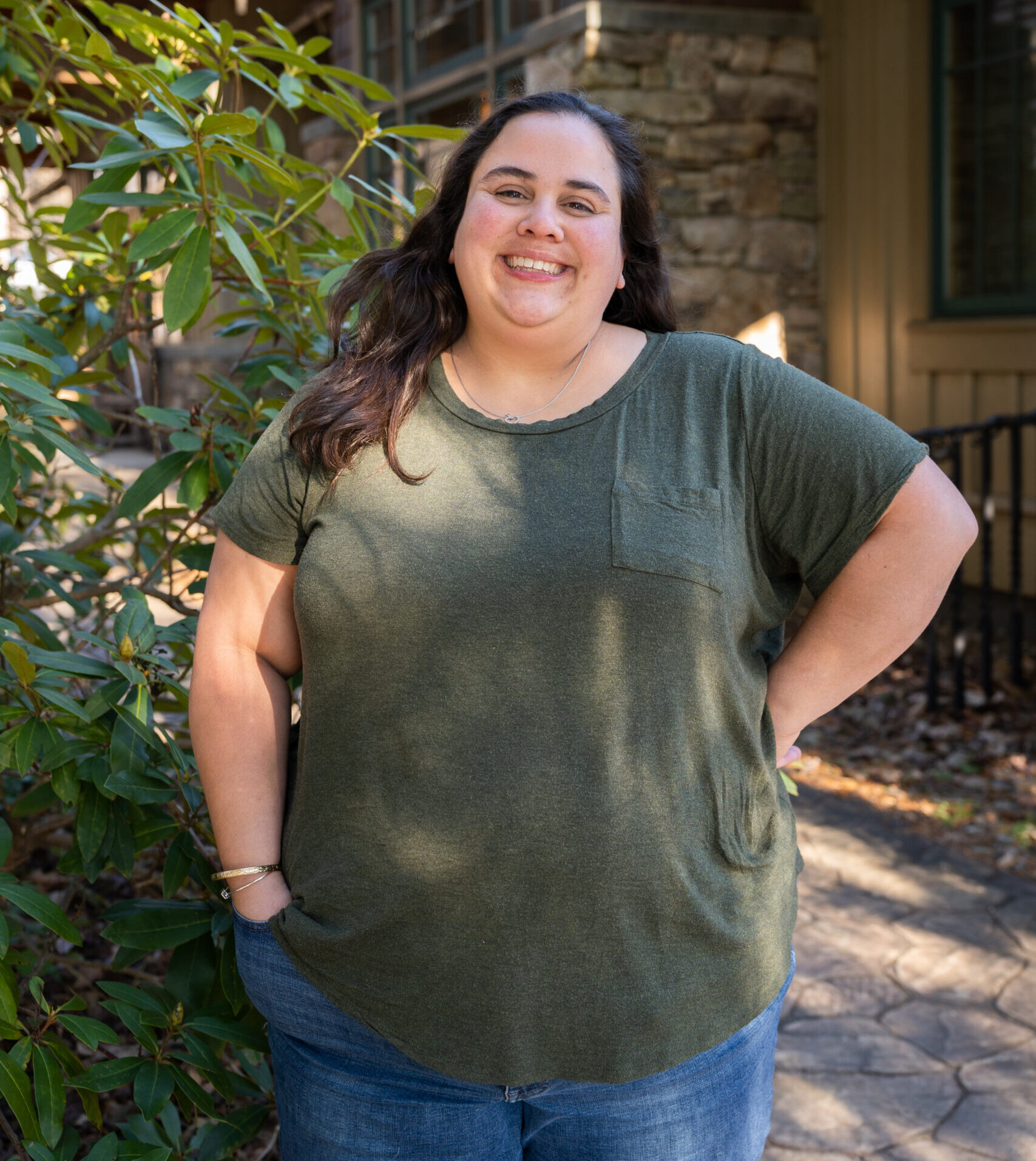
“At Warren Wilson, I have most enjoyed learning from my students as much as I am teaching them. Their wealth of experiences has not only been valuable in my lessons, but I have learned so much from them as well!”
Kim Borges, Ph.D.
Research Interests
- Aquatic microbiology and public health
- Biochemistry of environmental mycobacteria and mycobacteriophages

“Warren Wilson students are the most engaged and curious students I have ever had the privilege of teaching. I feel so fortunate to work with students who challenge me to learn and grow every day.”
Langdon J. Martin, Ph.D.
Research Interests
- Reduction of methane production in ruminant livestock
- Analysis of spent craft brewer’s yeast
- Analysis of natural products

“In the classroom, I have two jobs as a professor. My first job is to confuse you. My second job is to un-confuse you: because that’s how the learning happens!”
Yuemei Zhang, Ph.D.
Research Interests
- Renewable energy
- Magnetic materials for data storage and retrieve
- Computational Chemistry

“Warren Wilson students are curious and engaging. I am inspired by their questions and enthusiasm during class discussions. I love to teach them and learn with them.”
Olya Milenkaya, Ph.D.
Research Interests
- Biodiversity Conservation
- Wildlife Behavioral Ecology
- Invasive Species

“I love teaching at Warren Wilson because the students challenge me to dig deeper and think harder. And I return the favor: we push and support each other in our learning. ”
Alisa Hove, Ph.D.
Research Interests
- Mating system evolution
- Plant-fungal interactions
- Evolutionary responses to environmental stress

“Warren Wilson College provides seemingly endless opportunities to work in collaborative settings with students who take an active role in their own learning. ”
Liesl Peterson Erb, Ph.D.
Research Interests
- Ecology and Evolutionary Biology
- Conservation biology
- Wildlife ecology
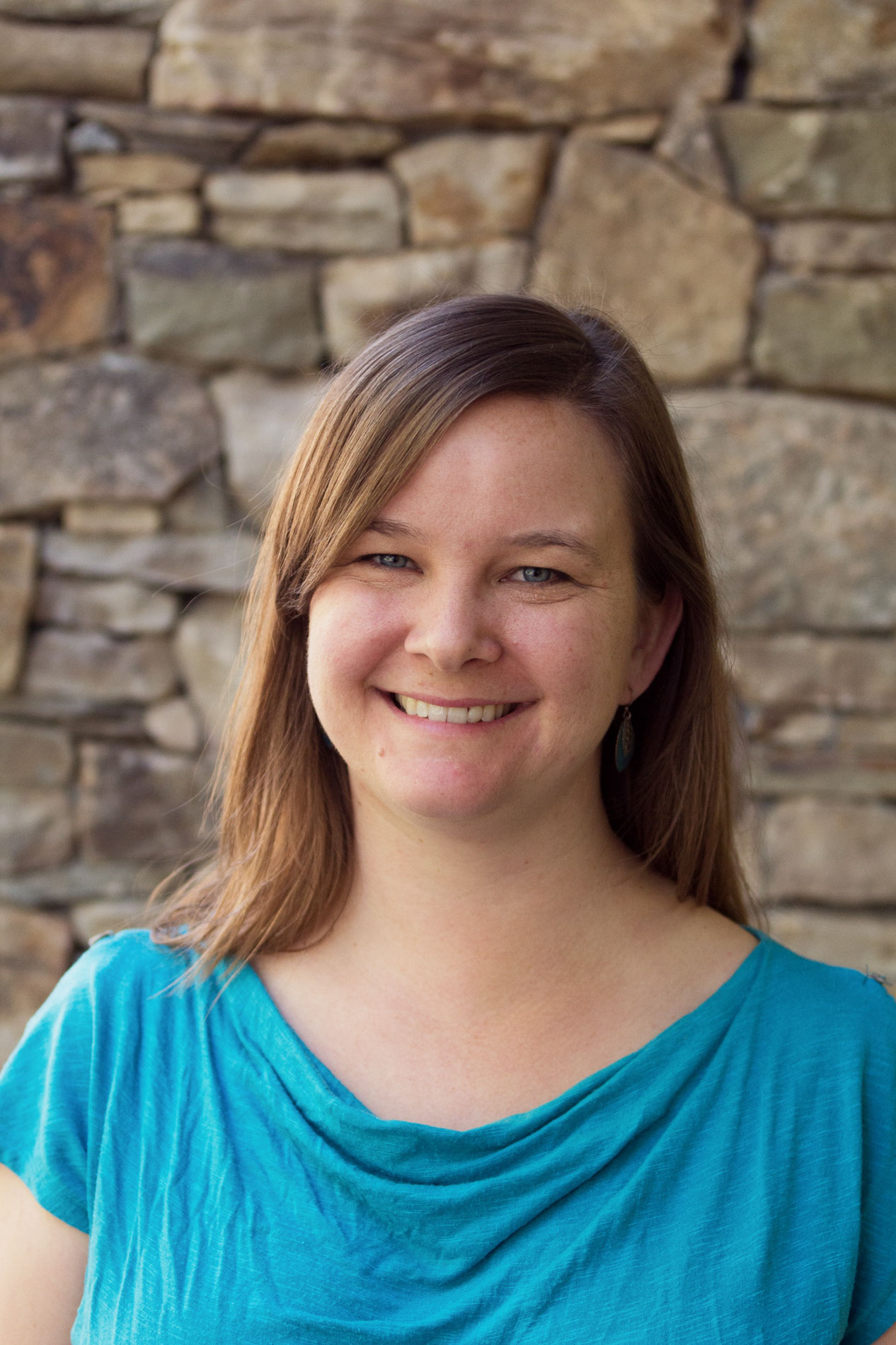
“I am more guide than teacher; I love guiding intelligent, passionate students as they help change the world not just after they graduate, but as part of their educational experience.”
Patrick Ciccotto, Ph.D.
Research Interests
- Systematics of Asian freshwater fishes
- Evolutionary ecology of fish coloration
- Aquatic conservation

“The enthusiasm Warren Wilson students have for the study of the natural world on campus and beyond is infectious. I enjoy guiding and learning from them as we explore biological systems and processes together.”
Mark Brenner, Ph.D.
Research Interests
- Aquatic Ecology
- Nutrient cycling in ecosystems
- Mycoremediation

“As a field biologist, I always say our best laboratories are right out the back door of the science building. Within a 5 minute walk we have 3 ponds, a trout stream and 600 acres of Forest.”
Jeff Holmes, Ph.D.
Research Interests
- Toxoplasma gondii in shrew mortality and behavior
- Learning in the sensitive plant, Mimosa pudica
- Planctomycete bacteria
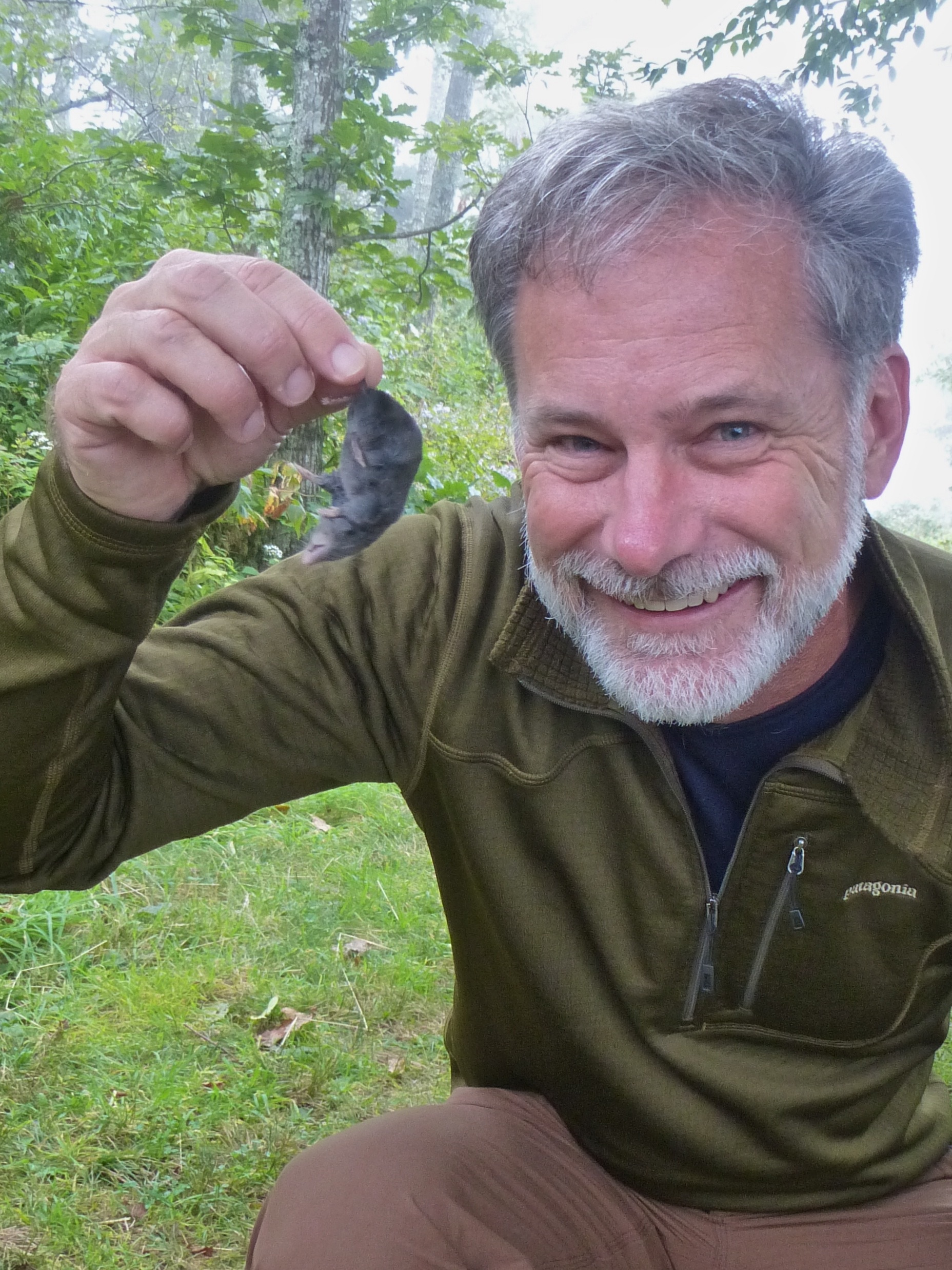
“There are a lot of great colleges in this country, both big and small, but I don’t know of another one I would rather teach at than here.”
Christopher Potvin, Ph.D.
Research Interests
- Topological Data Analysis
- Algebraic Topology
- Hypergraphs

“Working with students is my biggest passion. I think my motto as a long time summer camp counselor and director sums up my teaching philosophy pretty well: Camp is for the campers!”
Holly Rosson, Ph.D.
Research Interests
- Mathematical Modeling and Data Science with applications to environmental sustainability and social justice.
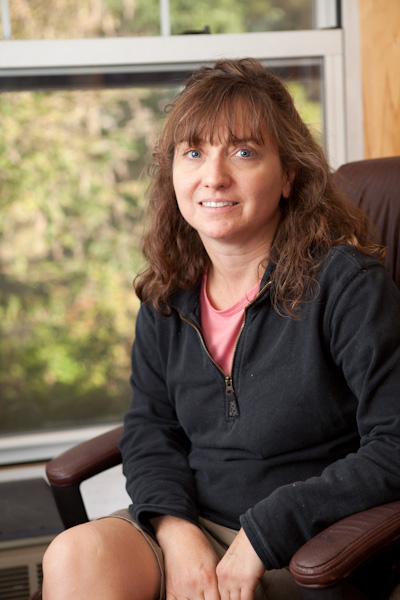
“I love the diverse interests of students, faculty, and staff at Warren Wilson.”
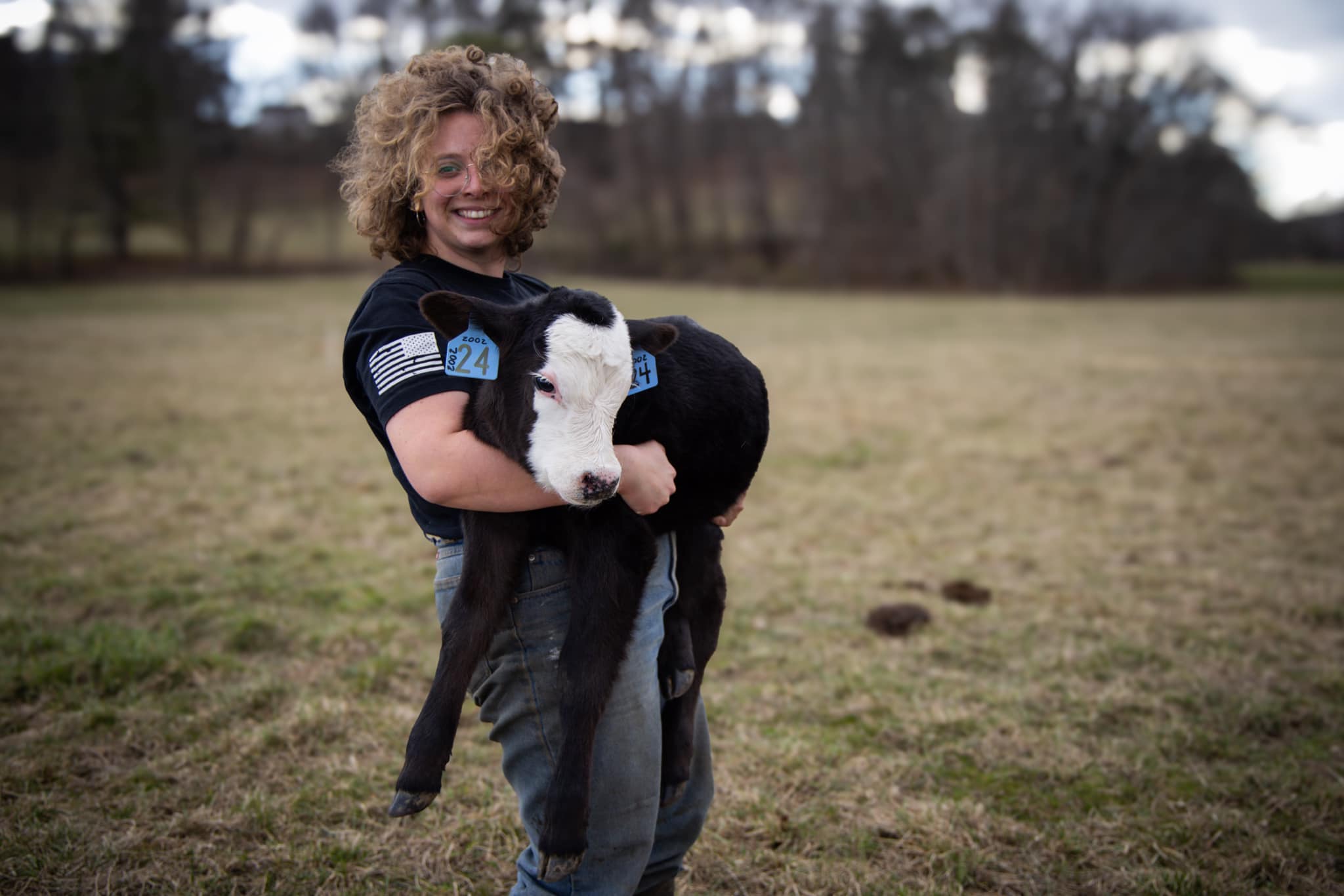
“I think it’s very very unique, a lot of people my age have not worked on an operation like this. And so when I had my vet school interview, they were all very impressed and interested.”
Emma Reagan
(she/her)
Graduate Student at UT Knoxville’s College of Veterinary School
Major, Minor, Concentration, Crews
- Biology Major
- Biochemistry Minor
- Pre-Veterinary Advising
- Crew: Farm (Cattle Boss)
Where Our Pre-Vet Graduates Go
- University of Tennessee Knoxville
- University of Georgia
- Caney Fork Farms
